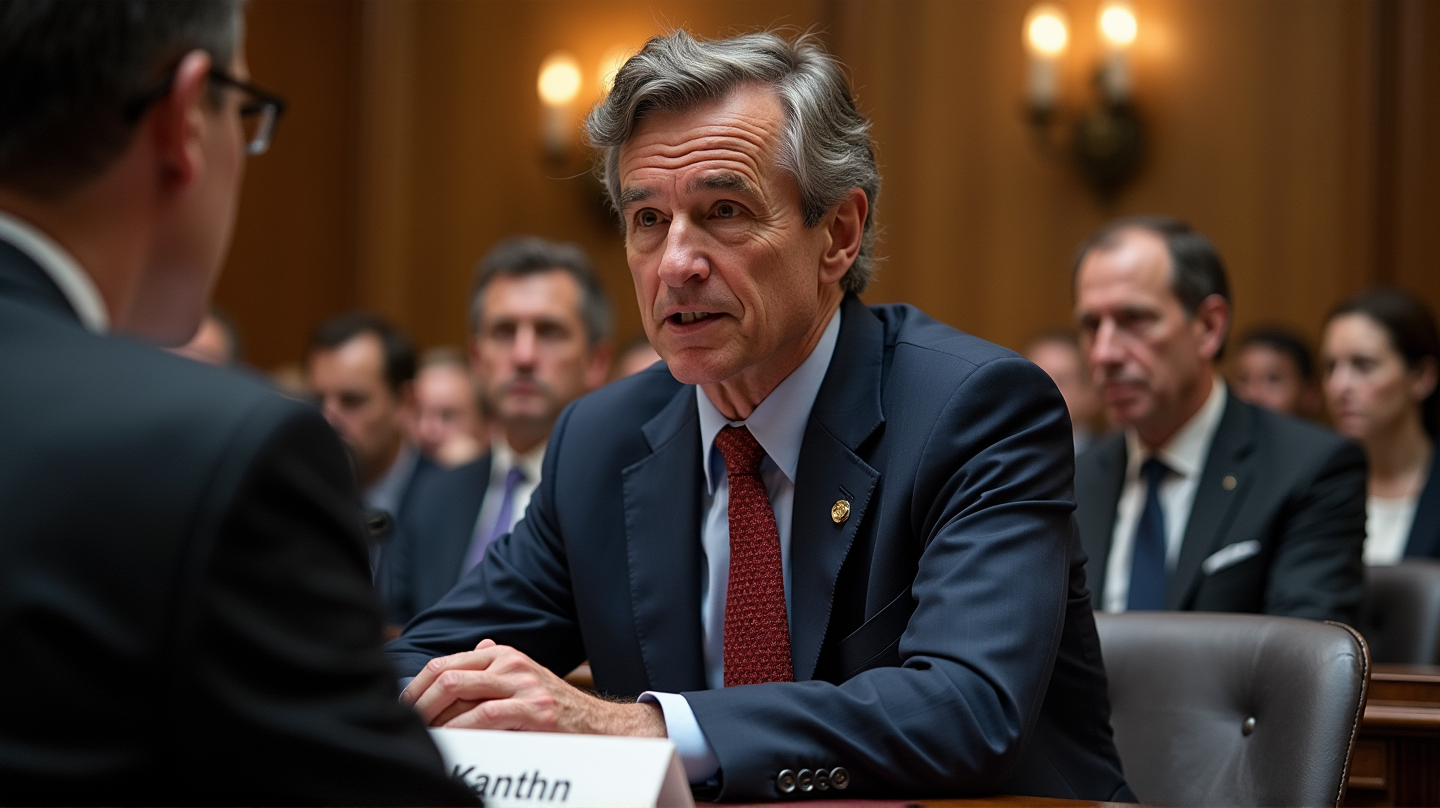A Deep Dive into RFK Jr.'s Controversial Vaccine Claims
Robert Kennedy Jr.'s alarming claims about vaccines, COVID, and American health stir Senate debate; experts break down the facts.

In a Senate hearing that resonated with intensity and fervor, Robert F. Kennedy Jr. ignited discussions around vaccines, COVID-19, and the health landscape in America. His bold assertions drew attention, not only for their contentious nature but for the depth of the issues they unveil about public health strategies.
Striking Claims and Stirring Dialogues
Kennedy’s statement that America is the “sickest country in the world” provoked reactions both in support and opposition. Dr. Richard Besser, formerly with the CDC and now a leading voice in public health, challenged this sweeping assertion. Drawing from his extensive experience, Dr. Besser acknowledged the U.S.’s high health expenditure but questioned the efficiency of its allocation towards impactful health outcomes. According to PBS, a shift towards public health and preventive measures is imperative for tangible health improvements.
The Chronic Disease Conundrum
With Kennedy citing an alarming 76 percent prevalence of chronic diseases among Americans, the claim stirred skepticism. The need for clear, evidence-based statistics is paramount in such discussions to navigate the complex health challenges America faces. Despite the contention surrounding the precise figure, it underscores the critical dialogue on health strategies focusing on lifestyle and preventive measures, suggesting potential pathways to enhance public health.
COVID-19: Numbers and Narratives
Another pivotal point during the hearing revolved around the estimated lives saved by the COVID-19 vaccines. Kennedy’s reluctance to affirm the vaccine’s life-saving role sparked debate over the data’s validity. However, health experts like Dr. Besser stress the substantial evidence supporting the efficacy and safety of COVID vaccines, successes hailed as a scientific triumph amidst the pandemic chaos.
A Bipartisan Call for Clarity
Amidst the swirling narratives and figures, the hearing highlighted a bipartisan concern for evidence-backed health policies. The emphasis was on transcending political divides to collaboratively address the challenges led by misinformation. As stated in PBS, such unity could safeguard public health progress and policy integrity in unpredictable health terrains.
Echoes Beyond the Hearing Room
The ripple effect of Kennedy’s claims and the subsequent Senate scrutiny reverberates beyond mere discussion. It calls for a continued evaluation of health policies in light of scientific advancements and public concerns. Engaging with these critical dialogues shapes a more informed, healthier society that values robust, transparent, and accountable health governance.
The controversies illuminated during this Senate hearing serve as a potent reminder of the complexities embroiled in public health narratives. For ongoing resilience and progress, both scientific insights and informed policy-making must go hand in hand. This is a conversation not just for the lawmakers but for every citizen affected by these crucial health decisions.





